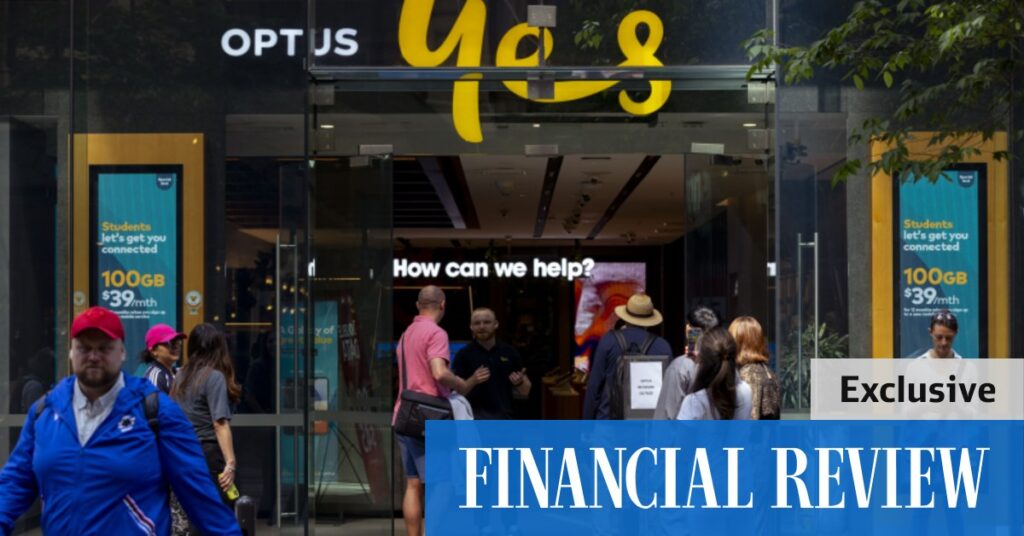Ms O’Neil previously criticised the Coalition for not including telcos in the critical infrastructure laws back in 2018, accusing her predecessor, Paul Fletcher, of striking a “sweetheart deal” with the companies.
At the time, the Coalition was satisfied telcos were adequately covered by other legislation that included necessary sector standards for cybersecurity.
But Ms O’Neil described the existing laws as “bloody useless” during the Optus breach back in October 2022, in which an anonymous hacker stole names, birthdates, phone numbers, addresses, passport, healthcare and driver’s licence details of 9.8 million Australians.
The crackdown on telcos precedes the release of the government’s cybersecurity strategy this month, and comes amid the major cyberattack on stevedore giant DP World, which manages container operations at ports in Sydney, Melbourne, Brisbane and Fremantle.
DP World executive vice president Oceania Nicolaj Noes on Sunday told the Financial Review that the movement of about 30,000 shipping containers was affected by the attack, but the company expected operations to return to normal in “days not weeks”. Mr Noes said it was unclear if the stevedore was covered by the critical infrastructure regime but the company was complying anyway.
Telcos were partially brought under the critical infrastructure regime last year when they were required to report information such as ownership and operating information about critical assets to the government. Ms O’Neil’s changes are also designed to streamline the regulatory regime covering telcos.
The latest changes will impose stricter rules aimed at hardening critical systems against attacks and also give the government powers to intervene and provide directions during incidents.
Hardening critical infrastructure against cyber threats will be a central theme of The Australian Financial Review Infrastructure Summit being held in Sydney this week, though looming cuts worth tens of billions of dollars to dozens of projects across the country are expected to dominate discussions.
Infrastructure blowout
An independent 90-day infrastructure review commissioned in May by Infrastructure Minister Catherine King – who is addressing the Summit on Tuesday – found a $33 billion blowout in the cost of more than 700 road and rail projects and said more cost increases were expected to come.
The blowout represents a 41 per cent rise in the $80 billion 10-year federal budget allocation to the Infrastructure Investment Program.
The program is part of a larger $120 billion government-funded infrastructure investment pipeline, which also includes an additional $40 billion for community road funding, black spot programs and bridge renewals.
Ms King has accused the Coalition of failing to properly fund the program after the review – led by former Infrastructure Department secretary Mike Mrdak – found most projects announced under the Coalition – which increased the program from about 150 to more than 700 projects – came in election years.
The majority of the $80 billion was also front-loaded, with analysis of Infrastructure Department data by the Financial Review showing a third of the money is due to be spent by mid-2025, in just 20 months, placing a huge strain on the construction sector and further stoking already high inflation.
Cath Bowtell, chairwoman of IFM Investors which owns some of the country’s most sought-after blue-chip infrastructure assets, said while certain projects were important to boosting productivity and economic growth, it was important to consider sequencing, market capacity, procurement and financing models to limit upward pressure on inflation.
Ms King has been in politically fraught negotiations with state and territory governments about what projects should be chopped or pushed out to later years, with a final decision expected to be announced ahead of the mid-year budget update due sometime between late November and mid-December.
The complexity of that process has been compounded by Ms King’s saying Labor wanted to not only make “headroom” to fund existing projects within the $80 billion budget, but also to add new projects it wants.
Opposition infrastructure spokeswoman Senator Bridget McKenzie said Anthony Albanese had promised to become the “Infrastructure Prime Minister” but his Labor government had been anything but.
“We are now at the midway point of its term in office, and the government has got very little to show on infrastructure,” Senator McKenzie will tell the Infrastructure Summit on Monday.
“The government’s only new infrastructure commitments to speak of are not road, rail or ports – but music and sporting stadiums.”
Senator McKenzie said the delayed release of the “90-day review” and the slow overhaul of Infrastructure Australia was emblematic of the capital works malaise in the first-term Labor government.
She said the Coalition would introduce amendments to the Infrastructure Australia legislation requiring it to produce annual statements.

